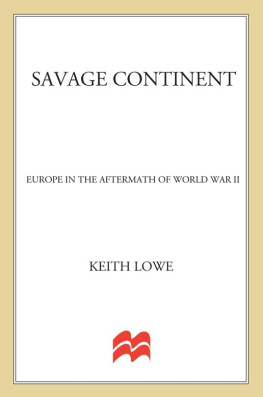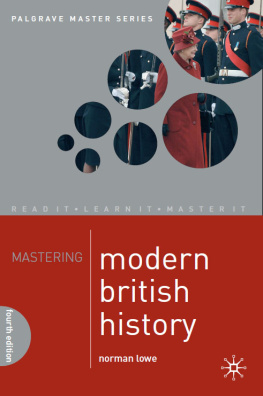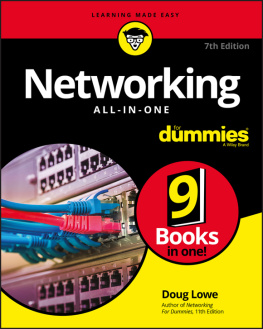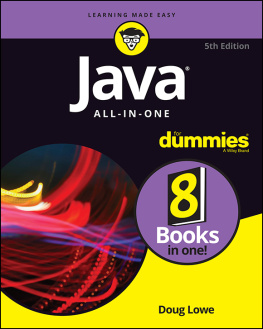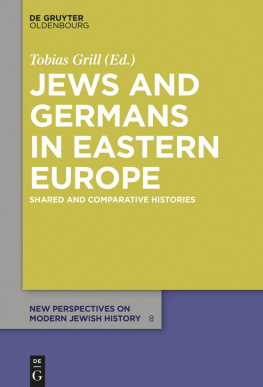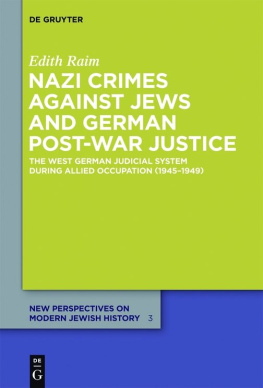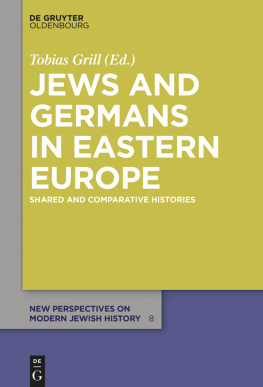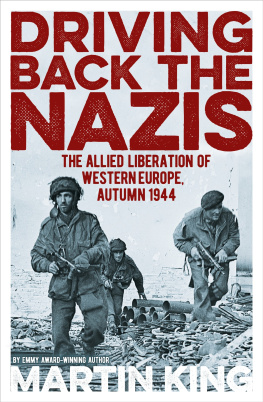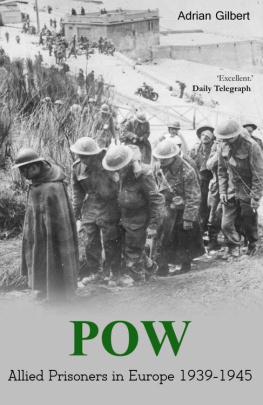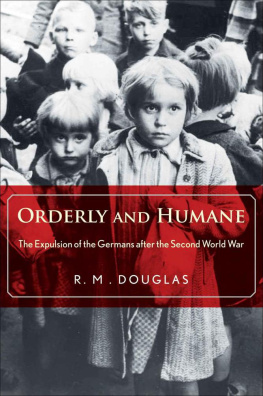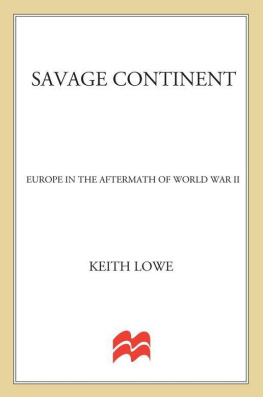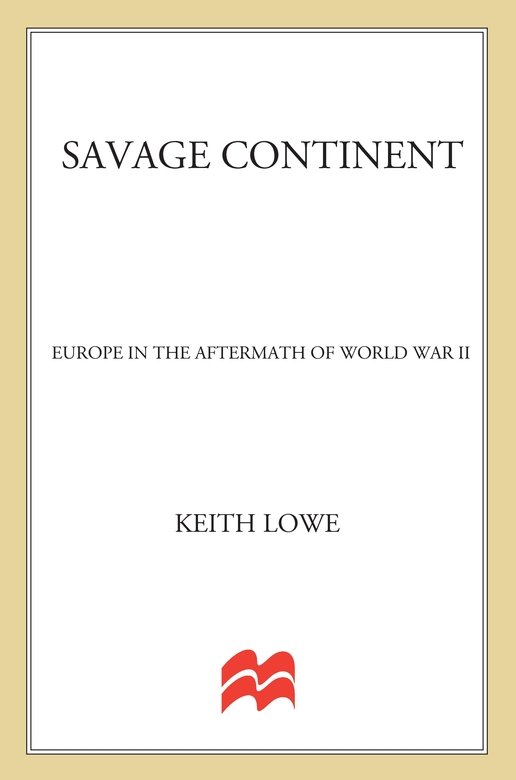The research for this book has been a monumental task, and could never have been accomplished without a vast amount of help from individuals and institutions across Europe. I am deeply grateful to the K. Blundell Trust for the generous grant which allowed me to pay for a significant part of my research. I am particularly indebted to Joanna Pylat, Barbara Herchenreder, Kasia Piekarska, Irena Kolar and Anna Pleban for their help in gathering and translating Polish and Ukrainian documents, and for putting me in touch with numerous Polish eyewitnesses to postwar events. I could never have understood the intricacies of the Czech and Slovak sources without the assistance of Michaela Anderlova, Martina Horackova and Dasha Conolly; and Alexandra Sherley was a godsend when it came to translating Croatian documents. My attempt to struggle through Italian, French and German source material was greatly eased by Jennie Condell, John Conolly and my multilingual sisters Natalie and Sarah. My mother-in-law, Zsuzsi Messing, also worked tirelessly translating huge passages of Hungarian books and documents.
The staff of dozens of institutions across Europe and in the United States were uniformly helpful, but special mention must go to the British Library, whose astonishingly broad foreign-language collections are second to none. I am also very grateful to Dr Richard Butterwick and Dr Bojan Aleksov of the School of Eastern European and Slavonic Studies at University College London for introducing me to some of the researchers mentioned above; and to Peter Hart of the Imperial War Museum for selflessly sharing his expertise in the early days of my research.
I would especially like to thank all those who agreed to let me interview them about their often painful experiences, most notably BenHelfgott, Andrzej C. (who wishes to remain anonymous), Barbara Paleolog, Stefa Baczkowska, Hanka Piotrowska, Maria Bielicka, Marilka and Alik Ossowski, and Zbigniew Ogrodzinski. It was their input that first brought my drier archival research to life.
As always I am much obliged to my brilliant literary agents, Simon Trewin and Ariella Feiner of United Agents, and Dan Mandel of Sanford J. Greenburger Associates. They excel in all the areas where I am at my most incompetent.
I must also thank my equally brilliant editor, Eleo Gordon, without whose help this book would have been twice as long and half as interesting. But thanks are also due to the unsung heroes at Penguin, whose expertise in sales, marketing, publicity, design and production are so essential to any book. Special mention must go to Penguins foreign rights team who have almost single-handedly made this book a commercial possibility.
Lastly, as in so many other areas of my life, my greatest thanks must go to my wife Liza for her help, patience, love and all-round support throughout the years that it took to write this book. It would have been impossible without her.
In his memoirs of the late 1940s and 50s, published after his death following the famous umbrella assassination in London in 1978, the Bulgarian dissident writer Georgi Markov told a story that is emblematic of the postwar period not only in his own country, but in Europe as a whole. It involved a conversation between one of his friends, who had been arrested for challenging a Communist official who had jumped the bread queue, and an officer of the Bulgarian Communist militia:
And now tell me who your enemies are? the militia chief demanded.
K. thought for a while and replied: I dont really know, I dont think I have any enemies.
No enemies! The chief raised his voice. Do you mean to say that you hate nobody and nobody hates you?
As far as I know, nobody.
You are lying, shouted the Lieutenant-Colonel suddenly, rising from his chair. What kind of a man are you not to have any enemies? You clearly do not belong to our youth, you cannot be one of our citizens, if you have no enemies! And if you really do not know how to hate, we shall teach you! We shall teach you very quickly!
In a sense, the militia chief in this story is right it was virtually impossible to emerge from the Second World War without enemies. There can hardly be a better demonstration than this of the moral and human legacy of the war. After the desolation of entire regions; after the butchery of over 35 million people; after countless massacres in the name of nationality, race, religion, class or personal prejudice, virtually every person on the continent had suffered some kind of loss or injustice. Even countries which had seen little direct fighting, such as Bulgaria, had beensubject to political turmoil, violent squabbles with their neighbours, coercion from the Nazis and eventually invasion by one of the worlds new superpowers. Amidst all these events, to hate ones rivals had become entirely natural. Indeed, the leaders and propagandists of all sides had spent six long years promoting hatred as an essential weapon in the quest for victory. By the time this Bulgarian militia chief was terrorizing young students at Sofia University, hatred was no longer a mere by-product of the war in the Communist mindset it had been elevated to a duty.
There were many, many reasons not to love ones neighbour in the aftermath of the war. He might be a German, in which case he would be reviled by almost everyone, or he might have collaborated with Germans, which was just as bad: most of the vengeance in the aftermath of the war was directed at these two groups. He might worship the wrong god a Catholic god or an Orthodox one, a Muslim god, or a Jewish god, or no god at all. He might belong to the wrong race or nationality: Croats had massacred Serbs during the war, Ukrainians had killed Poles, Hungarians had suppressed Slovaks, and almost everyone had persecuted Jews. He might have the wrong political beliefs: both Fascists and Communists had been responsible for countless atrocities across the continent, and both Fascists and Communists had themselves been subjected to brutal repression as indeed had those subscribing to virtually every shade of political ideology between these two extremes.
The sheer variety of grievances that existed in 1945 demonstrates not only how universal the war had been, but also how inadequate is our traditional way of understanding it. It is not enough to portray the war as a simple conflict between the Axis and the Allies over territory. Some of the worst atrocities in the war had nothing to do with territory, but with race or nationality. The Nazis did not attack the Soviet Union merely for the sake of Lebensraum: it was also an expression of their urge to assert the superiority of the German race over Jews, Gypsies and Slavs. The Soviets did not invade Poland and the Baltic States only for the sake of territory either: they wanted to propagate communism as far westwards as they were able. Some of the most vicious fighting was not between the Axis and the Allies at all, but between local people who took the opportunity of the wider war to give vent to much older frustrations. The Croat Ustashas fought for the sake of ethnic purity. The Slovaks, Ukrainians and Lithuanians fought for national liberation. Many Greeks and Yugoslavs fought for the abolition of the monarchy- or for its restoration. Many Italians fought to free themselves from the shackles of a medieval feudalism. The Second World War was therefore not only a traditional conflict for territory: it was simultaneously a war of race, and a war of ideology, and was interlaced with half a dozen civil wars fought for purely local reasons.

